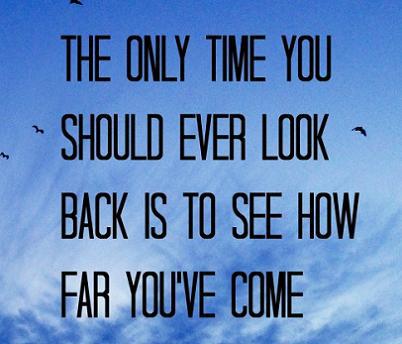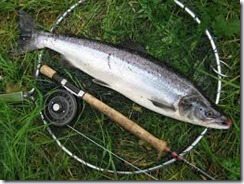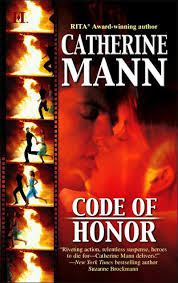 Bakewell, Sarah. At The Existentialist Café: Freedom, Being and Apricot Cocktails. Knopf Canada, 2016.
Bakewell, Sarah. At The Existentialist Café: Freedom, Being and Apricot Cocktails. Knopf Canada, 2016.
How I wish Sarah Bakewell had been my Philosophy professor when I began my undergraduate career. How I wish she’d been around to talk to when I was doing my graduate course in critical theory. Her explanation of phenomenology elucidates what can be a rather dense subject. Or perhaps it is my density that is the challenge. Alas, when I was a student, the teenage Bakewell was becoming a “suburban existentialist” (25). Such indeed are the mis-chronologies of time with relation to one’s own life.
 As the title suggests, At The Existentialist Café provides a retrospective overview of existentialism focussing particularly on those thinkers whose thought engendered it. The full title page reads “At The Existentialist Café: Freedom, Being and Apricot Cocktails with Jean-Paul Sartre, Simone de Beauvoir, Albert Camus, Martin Heidegger, Edmund Husserl, Karl Jaspers, Maurice Merleau-Ponty, and Others.” Bakewell includes a “Cast of Characters” that takes six and a half pages beginning with Nelson Algren and ending with Richard Wright. To stay within her own metaphor from the stage, the star roles in this drama are given to Jean-Paul Sartre and Simone de Beauvoir. One could perhaps see the book as a kind of bildungsroman for an idea. But then existentialism isn’t really only one idea. Some might define it as an ideology, or perhaps to use a less loaded term, a system of thought, and even a system of being.
As the title suggests, At The Existentialist Café provides a retrospective overview of existentialism focussing particularly on those thinkers whose thought engendered it. The full title page reads “At The Existentialist Café: Freedom, Being and Apricot Cocktails with Jean-Paul Sartre, Simone de Beauvoir, Albert Camus, Martin Heidegger, Edmund Husserl, Karl Jaspers, Maurice Merleau-Ponty, and Others.” Bakewell includes a “Cast of Characters” that takes six and a half pages beginning with Nelson Algren and ending with Richard Wright. To stay within her own metaphor from the stage, the star roles in this drama are given to Jean-Paul Sartre and Simone de Beauvoir. One could perhaps see the book as a kind of bildungsroman for an idea. But then existentialism isn’t really only one idea. Some might define it as an ideology, or perhaps to use a less loaded term, a system of thought, and even a system of being.
 What is perhaps most interesting about the book to me is that Bakewell unapologetically takes a biographical approach, but she is not writing the biography of one particular character. Both she and I were schooled in the “orthodox belief in the field at the time” (326) that the individual lives of philosophers or writers were of little import in comparison with their ideas. I remember being accused of “lapsing” into biographical criticism as a student and wondering to myself “but what about Keats’ letters? Can you really separate Virginia Woolf’s ideas from the effects life had on her? What about Joyce?” And so on. I kept my thoughts to myself and engaged in strict practical criticism, my institution demanding of all graduate students in English the passing of an exam devoted entirely to that art. I passed the exam and continued for a brief time into a world dominated by various strands of post-modernism. Try as I might, I couldn’t actually find how people who as Bakewell puts it sat around “playing with their signifiers” (28) were engaging in anything other than a kind of intellectual self-pleasuring. I also sensed not so much playfulness as a leaning towards a kind of intellectual totalitarianism that did not fit with my quietly independent self. Imagine my amusement, then, as towards the end of my career I began once again to see articles and hear papers read that engaged most specifically with their subjects’ personal biographies. As Bakewell points out, “Ideas are interesting, but people are vastly more so” (326).
What is perhaps most interesting about the book to me is that Bakewell unapologetically takes a biographical approach, but she is not writing the biography of one particular character. Both she and I were schooled in the “orthodox belief in the field at the time” (326) that the individual lives of philosophers or writers were of little import in comparison with their ideas. I remember being accused of “lapsing” into biographical criticism as a student and wondering to myself “but what about Keats’ letters? Can you really separate Virginia Woolf’s ideas from the effects life had on her? What about Joyce?” And so on. I kept my thoughts to myself and engaged in strict practical criticism, my institution demanding of all graduate students in English the passing of an exam devoted entirely to that art. I passed the exam and continued for a brief time into a world dominated by various strands of post-modernism. Try as I might, I couldn’t actually find how people who as Bakewell puts it sat around “playing with their signifiers” (28) were engaging in anything other than a kind of intellectual self-pleasuring. I also sensed not so much playfulness as a leaning towards a kind of intellectual totalitarianism that did not fit with my quietly independent self. Imagine my amusement, then, as towards the end of my career I began once again to see articles and hear papers read that engaged most specifically with their subjects’ personal biographies. As Bakewell points out, “Ideas are interesting, but people are vastly more so” (326).
 Perhaps. I’m not sure. My own experience is some people are really boring while some ideas are very exciting. It might be closer to the truth to say that engaging with people who have interesting ideas is far more satisfying than engaging with those who are unwilling to think for themselves. It is certainly fascinating to see to what extent people live up to their own ideas. I digress. I should reiterate the heart of At The Existentialist Café’s is its explanation of existentialism and its outlining of those ideas within the context of the times and of the people who formulated them. If you want more detail about Simone de Beauvoir’s life, for example, then read her own volumes of autobiography. If you want to gain a sense of the tension between Husserl and Heidegger’s thought, or why de Beauvoir and Sartre ultimately reached different conclusions from Camus, then Bakewell outlines those differences extremely clearly.
Perhaps. I’m not sure. My own experience is some people are really boring while some ideas are very exciting. It might be closer to the truth to say that engaging with people who have interesting ideas is far more satisfying than engaging with those who are unwilling to think for themselves. It is certainly fascinating to see to what extent people live up to their own ideas. I digress. I should reiterate the heart of At The Existentialist Café’s is its explanation of existentialism and its outlining of those ideas within the context of the times and of the people who formulated them. If you want more detail about Simone de Beauvoir’s life, for example, then read her own volumes of autobiography. If you want to gain a sense of the tension between Husserl and Heidegger’s thought, or why de Beauvoir and Sartre ultimately reached different conclusions from Camus, then Bakewell outlines those differences extremely clearly.
 Bakewell puts the personal back into Philosophy not only in focussing on the philosophers who did the philosophy but also in permitting herself the use of the first person. She allows herself a presence in her writing that one doesn’t normally expect, telling us how she was drawn to existentialism and to philosophy as a discipline. In summarizing Merleau-Ponty’s argument that the philosopher must have “the taste for evidence and the feeling for ambiguity” (qtd. Bakewell), she explains that “we can never move definitively from ignorance to certainty, for the thread of the inquiry will constantly lead us back to ignorance again.” She sees this view as “the most attractive description of philosophy . . .[she’s] ever read, and the best argument for why it is worth doing, even (or especially) when it takes us no distance at all from our starting point (241). I agree.
Bakewell puts the personal back into Philosophy not only in focussing on the philosophers who did the philosophy but also in permitting herself the use of the first person. She allows herself a presence in her writing that one doesn’t normally expect, telling us how she was drawn to existentialism and to philosophy as a discipline. In summarizing Merleau-Ponty’s argument that the philosopher must have “the taste for evidence and the feeling for ambiguity” (qtd. Bakewell), she explains that “we can never move definitively from ignorance to certainty, for the thread of the inquiry will constantly lead us back to ignorance again.” She sees this view as “the most attractive description of philosophy . . .[she’s] ever read, and the best argument for why it is worth doing, even (or especially) when it takes us no distance at all from our starting point (241). I agree.
 At the end of the book, she draws our attention to the way existentialist thought has permeated our own times and makes the argument that despite being personally “hopelessly flawed” (319) the existentialist philosophers and their predecessors such as Heidegger nevertheless still have much to offer us in that “they set out to detect and capture the quality of experience as we live it rather than according to the frameworks suggested by traditional philosophy, psychology, Marxism, Hegelianism, structuralism, or any of the other –isms and disciplines that explain our lives away” (325). She points out how the desire for authenticity is as strong today as it ever was in the middle years of the twentieth century and asserts that “freedom may prove to be the great puzzle for the early twenty-first” given that we are living in a time when “basic ideas about freedom have been assailed.” In fact, she reminds us that “what we cannot do any longer is take it [freedom] for granted” (318).
At the end of the book, she draws our attention to the way existentialist thought has permeated our own times and makes the argument that despite being personally “hopelessly flawed” (319) the existentialist philosophers and their predecessors such as Heidegger nevertheless still have much to offer us in that “they set out to detect and capture the quality of experience as we live it rather than according to the frameworks suggested by traditional philosophy, psychology, Marxism, Hegelianism, structuralism, or any of the other –isms and disciplines that explain our lives away” (325). She points out how the desire for authenticity is as strong today as it ever was in the middle years of the twentieth century and asserts that “freedom may prove to be the great puzzle for the early twenty-first” given that we are living in a time when “basic ideas about freedom have been assailed.” In fact, she reminds us that “what we cannot do any longer is take it [freedom] for granted” (318).
 As you can no doubt see, I enjoyed this book. The pleasure lies not only in its insight and clarity but also because just as her research for the book put Bakewell in touch with her own younger self her finished work allowed me a slight frisson of memory of my younger, intellectually enquiring self. As I later grew to know, there is so much more to being an existentialist than organizing improv workshops, attending poetry and jazz nights, and wearing a black turtle neck sweater—I would argue still that you can never have too many—but the existentialist’s emphasis on personal responsibility, the attempt to live up to an individual moral code remain with me.
As you can no doubt see, I enjoyed this book. The pleasure lies not only in its insight and clarity but also because just as her research for the book put Bakewell in touch with her own younger self her finished work allowed me a slight frisson of memory of my younger, intellectually enquiring self. As I later grew to know, there is so much more to being an existentialist than organizing improv workshops, attending poetry and jazz nights, and wearing a black turtle neck sweater—I would argue still that you can never have too many—but the existentialist’s emphasis on personal responsibility, the attempt to live up to an individual moral code remain with me.
 Apart from the pleasure to be derived from reading At The Existentialist Café, I would recommend the work because, and this is what in some ways makes the book really important in today’s socio/political climate, in its biographical and chronological approach to its subject, it underlines just how important philosophy can be in contributing to an ethical society. I might risk asserting that doing philosophy is essential, but perhaps I should just say necessary.
Apart from the pleasure to be derived from reading At The Existentialist Café, I would recommend the work because, and this is what in some ways makes the book really important in today’s socio/political climate, in its biographical and chronological approach to its subject, it underlines just how important philosophy can be in contributing to an ethical society. I might risk asserting that doing philosophy is essential, but perhaps I should just say necessary.
Advertisements Share this:





